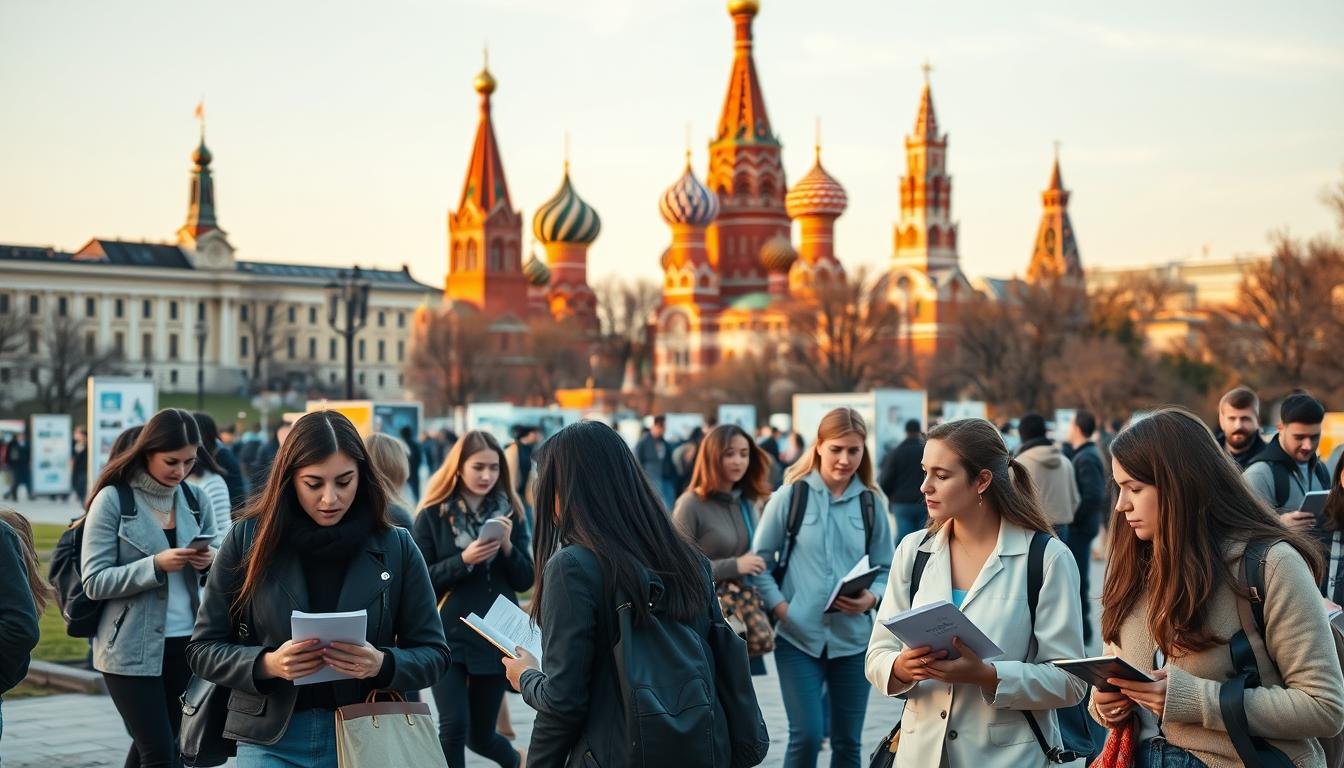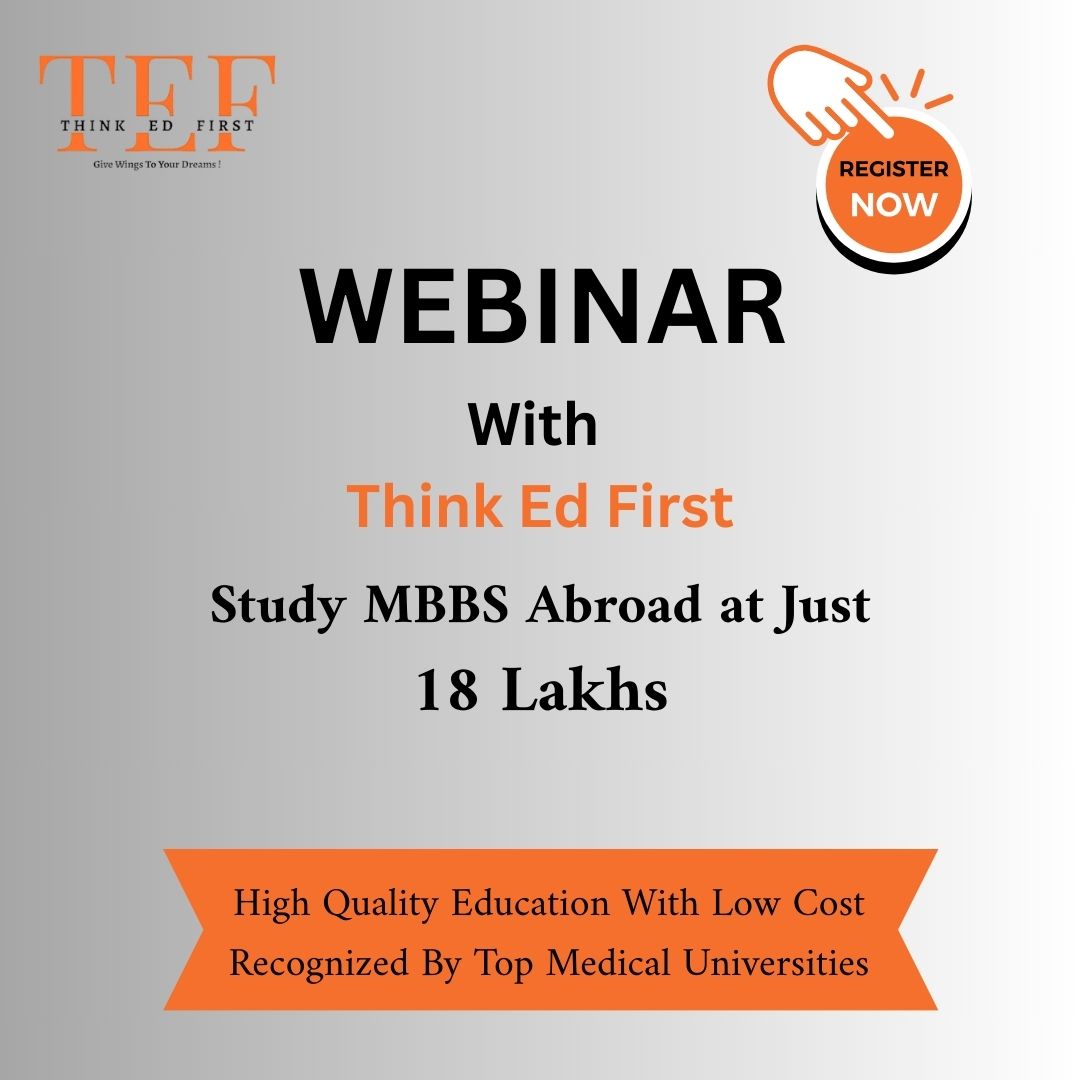Have you ever wondered how international medical students manage their finances while studying abroad? Balancing education and expenses can be challenging, especially in a foreign country. For those pursuing their dreams in Russia, understanding the rules and opportunities is crucial.
Many face financial hurdles, but there are ways to overcome them. Knowing the regulations and available options can make a significant difference. It’s not just about earning money; it’s about gaining skills and experiencing a new culture.
We’ll explore the benefits and legal requirements, helping you make informed decisions. Whether it’s tutoring or clinical research, there are numerous roles to consider. Let’s dive into the details and see how you can make the most of your time in Russia.
Introduction to Part-Time Jobs for MBBS Students in Russia
Russia’s medical universities attract learners from across the globe. With globally recognized degrees, these institutions offer a strong foundation for a medical career. Many international students choose Russia for its high-quality education and affordable fees.
The demand for English-speaking professionals is growing in various industries. This opens doors for learners to explore work opportunities while studying. Service sectors, in particular, value bilingual skills, providing a chance to earn and learn simultaneously.
Russia’s legal framework supports employment for learners with proper documentation. A work permit allows them to balance clinical studies with work. This balance is crucial for managing expenses and gaining practical experience.
Universities in Russia often provide support systems to help learners find suitable roles. Career centers and placement offices guide them through the process. This ensures they can focus on their studies while exploring work options.
Why MBBS Students Should Consider Part-Time Work in Russia
Exploring work options while studying can be a game-changer. It not only helps manage expenses but also enriches your overall experience. For learners in Russia, this balance offers unique advantages.
Financial Support for Living Expenses
Earning while studying can significantly reduce financial stress. Roles like tutoring or hospitality can cover 30-50% of monthly living costs. This allows learners to focus more on their studies without constant financial worries.
Gaining Practical Experience
Work roles provide hands-on experience that complements academic learning. Patient-facing positions improve clinical communication skills. Networking with healthcare professionals can also open doors for future opportunities.
Cultural Immersion and Language Practice
Daily interactions in the workplace accelerate language fluency. It also deepens cultural understanding, making the stay in Russia more enriching. These experiences go beyond the classroom, offering lifelong benefits.
- Average earnings: 23,161 RUB per month
- Up to 20 hours of work per week
- Enhanced skills in communication and problem-solving
Part-Time Jobs for MBBS Students Russia: Top Opportunities
Balancing studies with earning opportunities can transform your experience abroad. It’s not just about managing finances; it’s about gaining skills and exploring new avenues. Let’s look at some of the most popular roles available.
Language Tutoring
Teaching languages like English is a high-demand role, especially in cities like Moscow and St. Petersburg. It’s a great way to earn while sharing your knowledge. Many learners find this role flexible and rewarding.
Hospitality Industry Roles
Working in hotels or cafes can improve patient interaction skills. These roles often require bilingual abilities, making them ideal for international learners. They also offer a chance to meet people from diverse backgrounds.
Online Content Creation
Creating medical blogs or science articles combines healthcare knowledge with writing skills. This role allows for flexible hours and can be done from anywhere. It’s perfect for those who enjoy writing and research.
Retail Jobs
Working in campus bookstores or local shops offers flexible schedules. These roles are ideal for managing exam periods while earning extra income. They also provide valuable customer service experience.
Tour Guide Positions
Guiding visitors through cultural landmarks is both fun and educational. It’s a great way to explore the city while earning. This role also enhances communication and organizational skills.
Freelance Writing
Writing for medical publications or websites can be highly rewarding. It allows learners to leverage their healthcare knowledge while earning. This role is perfect for those with a passion for writing.
| Role | Salary Range (RUB) |
|---|---|
| Language Tutoring | 40,000 – 80,000 |
| Hospitality Industry | 23,000 – 62,000 |
| Online Content Creation | 500 – 1,000/hour |
Rules and Regulations for Working While Studying in Russia
Understanding the legal framework for employment while studying abroad is essential. It ensures compliance and helps avoid unnecessary complications. Let’s explore the key aspects of working legally in Russia.
Eligibility Requirements
To work legally, learners must meet specific criteria. They must be at least 18 years old and enrolled full-time in a recognized institution. Verification of enrollment status is mandatory.
Additionally, a certificate confirming HIV-negative status is required for permit approval. Regional employment restrictions are tied to the university’s location, limiting work opportunities to the same area.
Work Permit Process
Obtaining a work permit involves a three-step application process through the GUVM migration authorities. Applicants must submit documents like a passport, study certificate, and labor contract.
The interior ministry oversees the process, which typically takes about 10 days. A payment receipt and migration card are also required for approval.
Job Restrictions and Penalties
Certain roles are off-limits, including main accountants and municipal or state services. Nightshift work in healthcare facilities is also prohibited.
Violations can result in fines ranging from RUB 2,000 to 5,000. Compliance with these rules ensures a smooth experience while balancing work and studies.
| Aspect | Details |
|---|---|
| Age Requirement | 18+ |
| Processing Time | 10 days |
| Fines for Violations | RUB 2,000 – 5,000 |
| Regional Restrictions | University location |
For more details on studying in Russia, visit our comprehensive guide here.
How to Find Part-Time Jobs in Russia as an MBBS Student
Finding the right opportunities while studying abroad can be a rewarding experience. Knowing where to look and how to approach the process can make all the difference. Let’s explore the best ways to discover roles that fit your schedule and goals.
University Resources and Career Centers
Many institutions offer dedicated support through career centers and international offices. These resources often advertise roles like research assistants or tutors on campus notice boards. University-organized job fairs are another excellent way to connect with employers in the medical field.
Alumni mentorship programs can also be valuable. They link learners with professionals who can guide them toward suitable roles. Leveraging these resources ensures you’re well-prepared for the job market.
Online Job Portals and Social Media
Platforms like VK.com and LinkedIn are popular for finding English-speaking opportunities. Joining job groups on these sites can help you stay updated on openings. Optimizing your LinkedIn profile with relevant skills and experience increases your visibility to employers.
Freelance platforms are another option for flexible roles. Whether it’s content creation or tutoring, these portals offer diverse opportunities. Always verify the credibility of the platform before applying.
Networking with Peers and Professors
Building connections can open doors to unexpected opportunities. Professors often have industry contacts and can recommend roles that align with your skills. Peers may also share job leads or collaborate on projects that lead to paid work.
Attending seminars and workshops is another way to expand your network. These events often attract professionals who can provide valuable insights and referrals. Networking is a powerful tool for finding roles that aren’t advertised publicly.
| Platform | Best For |
|---|---|
| University Career Centers | On-campus roles, job fairs |
| VK.com | English-speaking opportunities |
| Professional networking, freelance roles |
For more tips on managing your studies and finances, check out our guide on how to study MBBS abroad at low cost.
Balancing Work and Studies: Tips for MBBS Students
Finding the right balance between studies and work requires careful planning. For learners in medical programs, managing clinical rotations and professional commitments can be challenging. However, with the right strategies, it’s possible to excel in both areas.
One of the first steps is to create a realistic schedule. Prioritize clinical rotations and academic responsibilities over non-medical roles. This ensures that your studies remain the primary focus while still allowing time for work.
Here are some practical tips to help you manage your time effectively:
- Limit work to a maximum of 20 hours per week during semesters to avoid burnout.
- Synchronize work shifts with anatomy lab schedules to minimize conflicts.
- Use hospital rotations as an opportunity for professional networking.
- Practice stress management techniques, such as mindfulness or regular breaks.
- Stay aware of academic probation policies related to employment to avoid penalties.
Effective time management is crucial for maintaining a healthy work-life balance. Communicate with your employer about your academic commitments to ensure flexibility. Utilize breaks between classes or shifts to review notes or complete small tasks.
Lastly, prioritize self-care. A healthy lifestyle with proper nutrition, exercise, and rest will help you stay focused and energized. By following these tips, you can successfully balance your studies and work commitments.
Popular Cities for Part-Time Jobs in Russia
Exploring urban centers in Russia can open doors to diverse earning opportunities. Cities like Moscow and St. Petersburg are known for their vibrant economies and cultural richness. These locations offer roles that align well with academic schedules.

Moscow: The Economic Hub
Moscow is a prime destination for those seeking flexible roles. The city’s international clinics often need translators, making it a great fit for bilingual learners. With an average salary of RUB 47,900, it’s one of the highest-paying cities in Russia.
Public transportation discounts are available for student workers, making commuting easier. Language exchange meetups are also common, helping learners improve their Russian skills while networking.
St. Petersburg: Cultural and Historical Center
St. Petersburg is another excellent choice, especially for those interested in tourism. The museum district offers roles like tour guides, which are both fun and educational. These positions allow learners to explore the city while earning.
Compared to Moscow, the cost of living in St. Petersburg is slightly lower. This makes it an attractive option for those managing a tight budget. The city’s rich history and cultural events provide a unique backdrop for work and study.
- Moscow’s international clinics offer translation roles.
- St. Petersburg’s museum district has tour guide opportunities.
- Public transportation discounts are available for student workers.
- Language exchange meetups are popular in both cities.
Average Salaries for Part-Time Jobs in Russia
Earning while studying in Russia can provide valuable financial support and practical experience. Understanding the average salaries across industries helps learners make informed decisions. Salaries vary depending on the role, location, and skills required.
In major cities like Moscow and St. Petersburg, hourly wages tend to be higher. For example, retail roles offer between RUB 26,000 and 46,000 monthly. Tour guides often earn additional income through tips, making it a lucrative option.
| Role | Hourly Wage (RUB) |
|---|---|
| Retail Cashier | 192 – 209 |
| Sales Advisor | 215 – 233 |
| Assistant | 435 – 474 |
| Intern | 363 – 391 |
Performance-based bonuses are common in service roles, adding to the overall earnings. Many employers prefer digital payment methods, ensuring timely and secure transactions. For non-native speakers, negotiating salaries can be challenging but is achievable with proper preparation.
Tax deductions for international learners can reduce financial burdens. It’s essential to understand local tax laws to maximize take-home pay. With the right approach, balancing work and studies becomes manageable and rewarding.
Work Permit Requirements for International Students
Navigating the process of obtaining a work permit in Russia can seem daunting at first. However, with the right information, it becomes manageable. Understanding the requirements ensures a smooth application process.
For international learners, securing a work permit involves specific steps and documentation. This allows them to work legally while pursuing their studies. Let’s break down the key aspects of the process.
Documents Needed
To apply for a work permit, several documents are required. These include a notarized translation of your passport and a study certificate from your university. A medical certificate confirming your health status is also mandatory.
Here’s a checklist of the essential documents:
- Notarized passport translation
- University enrollment verification
- Medical certificates (HIV test, infectious diseases, psychiatrist’s report)
- Employment contract
- Migration card with entry stamp
Processing Time and Fees
The processing time for a work permit is approximately 10 working days. However, express options may be available for faster results. The state fee for the application is 3,500 RUB.
It’s important to note that the permit is valid for one year. Renewal is required if you change jobs or during summer breaks. Always keep your documents updated to avoid complications.
| Aspect | Details |
|---|---|
| Processing Time | 10 working days |
| State Fee | 3,500 RUB |
| Validity | 1 year |
| Renewal | Job change or summer breaks |
By following these steps and preparing the necessary documents, you can secure your work permit efficiently. This allows you to focus on your studies while gaining valuable work experience.
Challenges Faced by Indian Students Working in Russia
Adapting to a new environment while pursuing studies can bring unique challenges. For Indian students, working in Russia often involves navigating language barriers and cultural differences. These hurdles can impact both professional and personal experiences.
Language Barriers
One of the most significant challenges is the language barrier. While many medical programs are taught in English, daily interactions in hospitals or workplaces often require Russian proficiency. Translating medical terminology during clinical meetings can be particularly demanding.
Workplace communication etiquette also differs. Understanding local customs and traditions is essential to integrate into the community. For example, formal greetings and specific phrases are often expected in professional settings.
Cultural Differences
Cultural differences can also pose challenges. Dietary accommodations in service jobs may not always align with Indian preferences. Managing homesickness while working in a foreign environment can be emotionally taxing.
Winter work commutes can be another hurdle. The cold weather and shorter daylight hours can make traveling to work or university more difficult. Building a support network is crucial to overcoming these challenges.
| Challenge | Solution |
|---|---|
| Language Barriers | Take Russian language classes or use translation apps. |
| Cultural Differences | Participate in cultural exchange programs or join student groups. |
| Homesickness | Stay connected with family and friends through regular calls. |
| Winter Commute | Plan travel routes in advance and dress appropriately for the weather. |
For more insights on adapting to life abroad, check out our guide on living and studying abroad.
Benefits of Part-Time Work for MBBS Students
Working while studying offers more than just financial benefits. It provides a platform to develop essential skills, build professional connections, and prepare for future medical careers. Let’s explore how these advantages can shape your academic and professional journey.
Financial Independence
Earning while studying helps cover living expenses and save for future goals. Many learners use their income to prepare for medical licensing exams like FMGE or NEXT. This financial stability reduces stress and allows focus on academic excellence.
Skill Development
Professional roles enhance practical skills that complement medical studies. Exposure to EHR systems in medical secretary roles improves technical proficiency. Cross-cultural team management experience also builds adaptability and leadership qualities.
Networking Opportunities
Working in healthcare or related fields creates valuable connections. Professional reference letters from employers can strengthen residency applications. Networking with hospital administrators and peers opens doors to mentorship and career guidance.
- Savings for medical licensing exams (FMGE/NEXT)
- EHR system exposure through medical secretary roles
- Professional reference letters from employers
- Cross-cultural team management experience
- Portfolio development for residency applications
Working in India After MBBS from Russia
Returning to India after completing your medical degree abroad opens up a world of possibilities. However, it also involves meeting specific requirements to practice medicine in the country. Understanding the process and opportunities can help you transition smoothly into your medical career.
FMGE Exam Requirements
To practice medicine in India, graduates must pass the Foreign Medical Graduates Examination (FMGE). This exam, conducted by the National Board of Examinations (NBE), ensures that international degrees meet Indian standards. The pass rate for Russian graduates is around 60%, highlighting the importance of thorough preparation.
Here’s what you need to know about the FMGE:
- The exam is held twice a year, in June and December.
- It consists of 300 multiple-choice questions covering all major medical subjects.
- Graduates must score at least 50% to pass.
- NMC recognition of Russian medical degrees ensures eligibility for the exam.
Job Opportunities in India
After clearing the FMGE, a wide range of job opportunities await. Government and private hospitals actively recruit qualified professionals. Corporate hospitals, in particular, offer competitive salaries and growth prospects.
Here are some career paths to consider:
- State-wise internships are mandatory before starting independent practice.
- Corporate hospital recruitment drives provide immediate job placements.
- Telemedicine startups are emerging as a promising field for young doctors.
- Preparation for PG entrance exams like NEET-PG can open doors to specialization.
With the right approach, you can build a successful medical career in India. Whether it’s working in a hospital, starting a private practice, or exploring telemedicine, the opportunities are vast.
Post-Study Work Options in Russia
After completing your studies, what’s next for you in Russia? The country offers diverse pathways for graduates to build their careers. Understanding your options ensures a smooth transition from academics to professional life.
Work Visa Types
Russia provides several visa options for graduates. The Highly Qualified Specialist (HQS) visa is ideal for those earning RUB 2 million or more annually. This visa simplifies the process for skilled professionals in fields like healthcare and technology.
Other options include the standard work visa, which requires an employment contract. Students transitioning to work visas must meet specific criteria, such as health checks and documentation. Here’s a quick overview:
- HQS visa for high earners in specialized fields.
- Standard work visa with employment contract requirements.
- Healthcare startup visa incentives for entrepreneurial graduates.
Permanent Residence Options
For those planning to stay long-term, permanent residence is an attractive option. Graduates with an honors diploma can fast-track their application. This pathway is especially beneficial for professionals in high-demand sectors.
Family reunification policies also make it easier for graduates to bring their families. However, dual citizenship is restricted, so it’s essential to understand the implications. Here are key points to consider:
- Honors diploma PR fast-track for top graduates.
- Family reunification policies for bringing loved ones.
- Dual citizenship restrictions and pension system participation.
Top Universities in Russia for MBBS Students
Russia is home to some of the world’s most prestigious medical institutions. These universities offer a blend of quality education and affordability, making them a top choice for international learners. With globally recognized degrees, they provide a strong foundation for a successful medical career.
Many of these institutions are MCI-approved, ensuring their curricula align with Indian medical standards. Hostel facilities are available, offering a comfortable stay for learners. Clinical rotation partnerships with hospitals provide hands-on experience, preparing students for real-world challenges.
For those unfamiliar with the Russian language, preparatory courses are offered. These courses help learners adapt to the local environment and improve communication skills. Alumni from these universities have achieved success in global health, showcasing the quality of education provided.
Scholarship opportunities are also available for deserving candidates. With 50% marks, learners can apply for financial aid, reducing the burden of tuition fees. Here are some key features of these universities:
- MCI-approved institutions with hostel facilities.
- Clinical rotation partnerships with hospitals.
- Russian language preparatory courses for international learners.
- Alumni success stories in global health.
- Scholarship opportunities for deserving candidates.
Choosing the right university is a critical step in your medical journey. With a focus on quality education and practical experience, these institutions pave the way for a successful career in healthcare.
Conclusion
Balancing academic responsibilities with professional growth can shape a rewarding future. Understanding the legal framework ensures compliance while pursuing supervised employment. Universities often provide resources to assist with permit applications, making the process smoother.
Long-term career planning is essential for maximizing the benefits of your experience. Explore roles that align with your skills and interests to enhance your journey. With proper guidance, you can navigate challenges and achieve your goals effectively.
For personalized assistance, consider booking a consultation with experts. They can help you make informed decisions and prepare for a successful career. Start your journey today and unlock endless opportunities.





